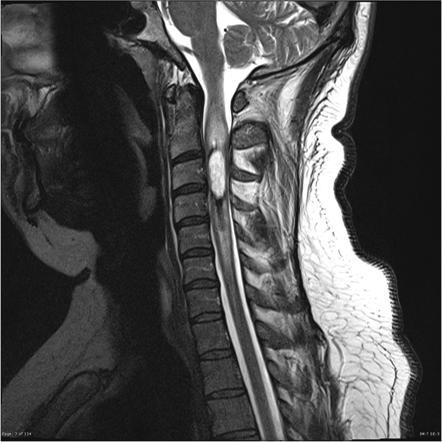Spine tumour surgery refers to a specialized medical procedure aimed at removing tumours that develop in or around the spine. These tumours can be benign (non-cancerous) or malignant (cancerous). The surgical intervention is typically recommended when the tumour causes compression or impairs the normal functioning of the spinal cord or nerve roots.
 Treatment Options: Before spine tumour surgery is considered, various diagnostic tests such as MRI, CT scans, and biopsies are conducted to determine the exact location, type, and extent of the tumour. The treatment options for spine tumours depend on several factors, including the tumour's size, location, and whether it is benign or malignant. The treatment plan may involve a combination of the following:
Treatment Options: Before spine tumour surgery is considered, various diagnostic tests such as MRI, CT scans, and biopsies are conducted to determine the exact location, type, and extent of the tumour. The treatment options for spine tumours depend on several factors, including the tumour's size, location, and whether it is benign or malignant. The treatment plan may involve a combination of the following:
Observation and Monitoring: In cases where the tumour is small, slow-growing, and not causing significant symptoms or impairments, the medical team may opt for periodic monitoring to track its progression.
Radiation Therapy: This treatment method uses high-energy beams to destroy cancer cells or shrink tumours. It is often recommended for patients who cannot undergo surgery or as an adjuvant therapy alongside surgical intervention.
Chemotherapy: Systemic medication is used to kill cancer cells throughout the body. Chemotherapy is typically employed when the tumour is malignant and has spread to other areas, making it unsuitable for surgical removal alone.
Targeted Therapy: This form of treatment uses drugs specifically designed to target and inhibit certain molecular pathways involved in tumour growth. Targeted therapy is more commonly used for certain types of malignant spine tumours.
Spine Tumour Surgery Procedure: When surgery is the recommended course of action, the specific procedure will depend on the type, location, and size of the tumour. Here are some common surgical approaches:
Resection: This procedure involves removing the tumour and a margin of surrounding healthy tissue. In some cases, the surgeon may need to stabilize the spine using rods, screws, or bone grafts.
Decompression: In situations where the tumour is compressing the spinal cord or nerve roots, a decompressive surgery may be performed to relieve the pressure and alleviate symptoms.
Fusion: If the tumour removal necessitates the removal of a significant portion of the spine, a fusion procedure may be performed to stabilize the spine. This involves joining two or more vertebrae using bone grafts or metal implants.
Recovery Process: The recovery period after spine tumour surgery can vary depending on the individual and the complexity of the procedure. Physical therapy and rehabilitation may be recommended to help regain strength and mobility. It is essential to follow the post-operative instructions provided by the medical team, which may include restrictions on activities and the use of assistive devices.
What is the success rate of Spine Tumour Surgery?
The success rate of spine tumour surgery varies depending on several factors, such as the type of tumour, its location, and the patient's overall health. Generally, the success rate is high, with many patients experiencing significant relief from symptoms and improved quality of life following successful surgery. However, the outcome can also be influenced by individual variations and potential complications.
How long does it take to recover from spine tumour surgery?
Recovery time can vary, but it typically ranges from several weeks to a few months, with ongoing rehabilitation to regain strength and mobility.
Will spine tumour surgery cure the cancer?
Spine tumour surgery aims to remove the tumour and alleviate symptoms, but its ability to cure cancer depends on the type, stage, and aggressiveness of the tumour, requiring additional treatments like radiation or chemotherapy.
Are there risks or complications associated with spine tumour surgery?
Like any surgery, spine tumour surgery carries risks such as infection, bleeding, nerve damage, or spinal instability, but these risks are usually managed through careful planning and expertise of the surgical team.
Will I be able to walk again after spine tumour surgery?
The restoration of walking ability depends on various factors, including the extent of spinal cord compression prior to surgery, the success of the procedure, and the individual's overall health. Physical therapy may be required to regain walking ability.
Can spine tumours recur after surgery?
There is a possibility of tumour recurrence, particularly in cases of malignant tumours. Regular follow-up appointments, imaging scans, and ongoing monitoring are crucial to detect and manage any potential recurrence.
We are associated with experienced and highly skilled medical professionals. We use the latest medical technology available in the world and we provide medical services in collaboration with JCI & NABH Certified hospitals only. Our services include various types of treatment and organ restructuring and transplant.
